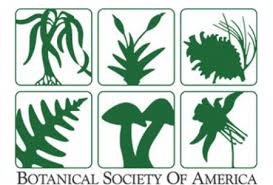Location
MO 63166-0299
Founded in 1893, the Botanical Society of America (BSA) is a "not-for-profit" 501 (c) (3) membership society whose mission is to: promote botany, the field of basic science dealing with the study and inquiry into the form, function, development, diversity, reproduction, evolution, and uses of plants and their interactions within the biosphere. To accomplish this mission, the objectives of The Society are to: sustain and provide improved formal and informal education about plants; encourage basic plant research; provide expertise, direction, and position statements concerning plants and ecosystems; and foster communication within the professional botanical community, and between botanists and the rest of humankind through publications, meetings, and committees.
The breadth of interests of BSA members are reflected in the 15 special interest sections of the Society with which all members have the opportunity to become affiliated. These special interest sections are the Bryological and Lichenological, Developmental and Structural, Ecological, Economic, Genetic, Historical, Microbiological, Paleobotanical, Phycological, Physiological, Phytochemical, Pteridological, Systematic, Teaching and Tropical Biology Sections. There are also four geographic sections (Northeastern, Midcontinent, Southeastern and Pacific).
The Botanical Society of America encompasses all areas of plant biology, including development, physiology, reproductive biology, evolution, phycology, genetics, mycology, ecology, systematics, molecular biology, and paleobotany. The BSA is one of the world's largest societies devoted to the study of plants and allied organisms, and functions as an umbrella organization covering all specialties. Since the strength of the botanical profession and its effective voice in world science today is dependent on the combined support of all taxonomic and disciplinary interest groups, all specialists are strongly encouraged to join and become active in the Botanical Society of America.
Members:
Resources
Displaying 1 - 2 of 2APPS's Stance on Self-Plagiarism: Just Say No
Should authors be able to reuse the same text in multiple papers without citing the earlier source? Known as self-plagiarism, this practice is strongly discouraged in Applications in Plant Sciences (APPS) because it violates professional standards, is potentially deceptive, and lacks originality. The most frequent form of self-plagiarism in APPS submissions is text recycling, which depending on the extent and location of copied text, has consequences ranging from authors being required to rewrite duplicated text or add citations, to automatic rejection of a manuscript without review.
Useful insights from evolutionary biology for developing perennial grain crops1
Annual grain crops dominate agricultural landscapes and provide the majority of calories consumed by humanity. Perennial grain crops could potentially ameliorate the land degradation and off-site impacts associated with annual grain cropping. However, herbaceous perennial plants with constitutively high allocation to harvestable seeds are rare to absent in nature. Recent trade-off theory models suggest that rugged fitness landscapes may explain the absence of this form better than sink competition models.


